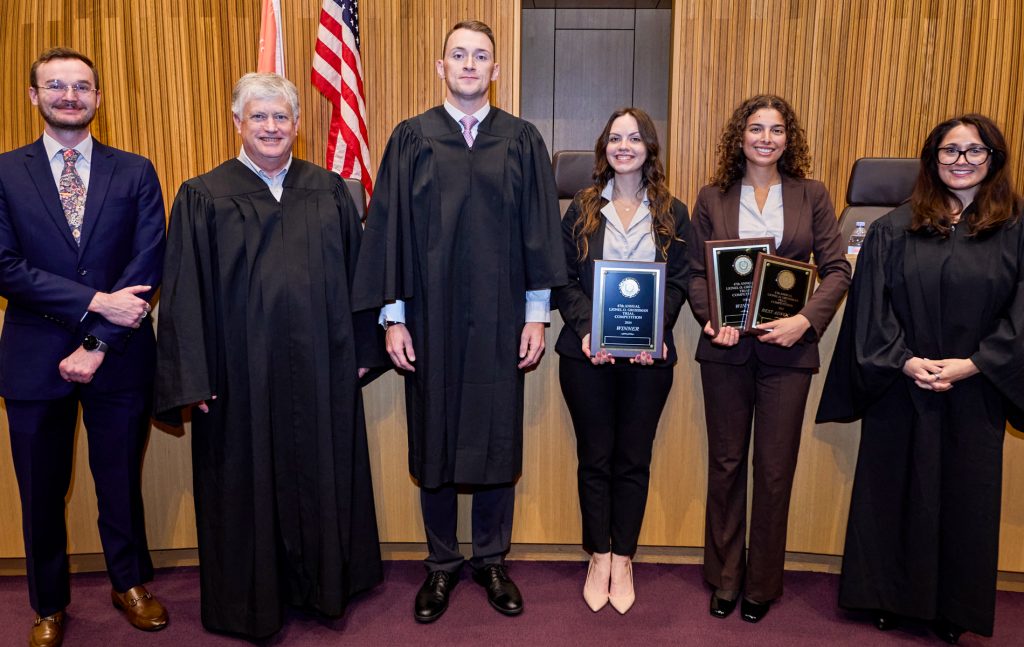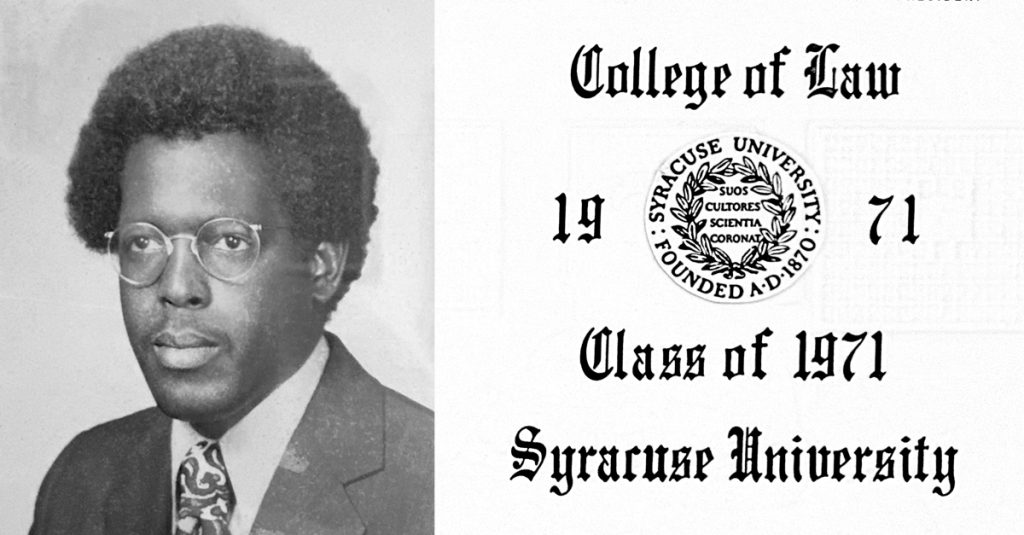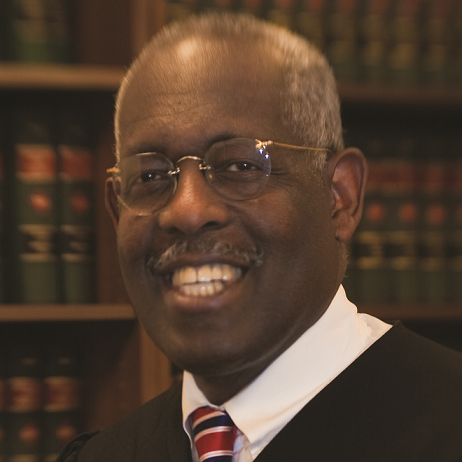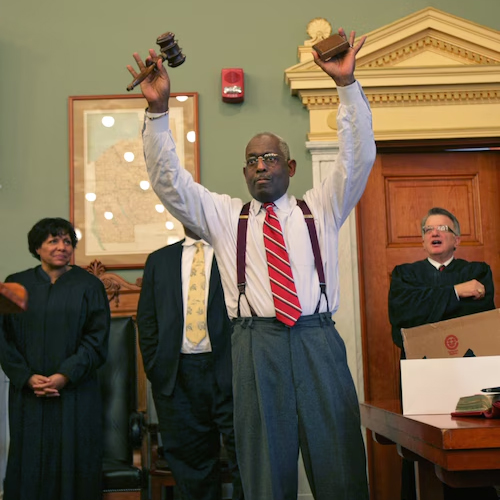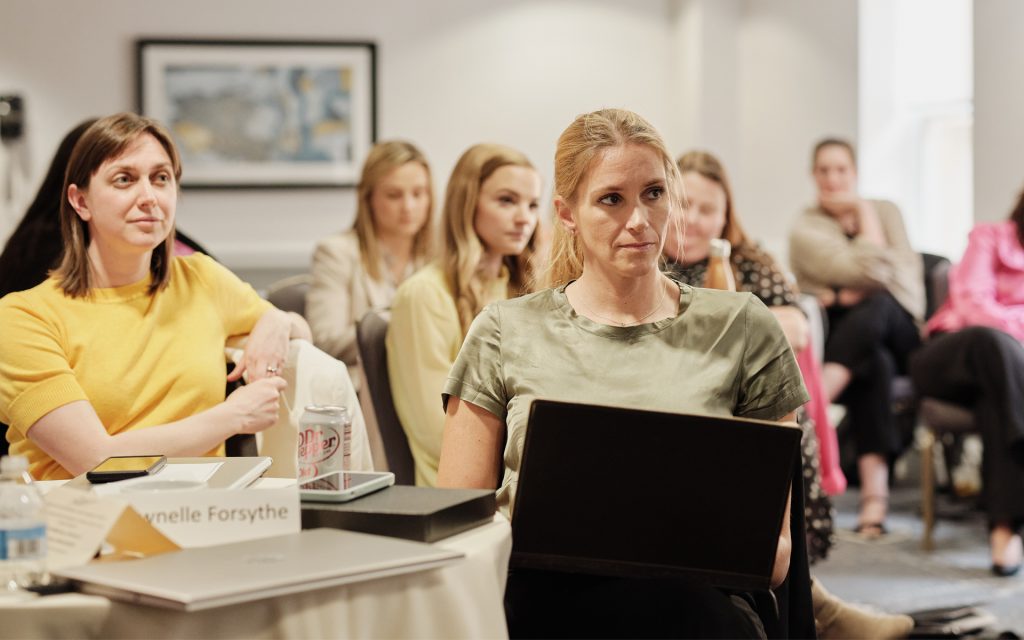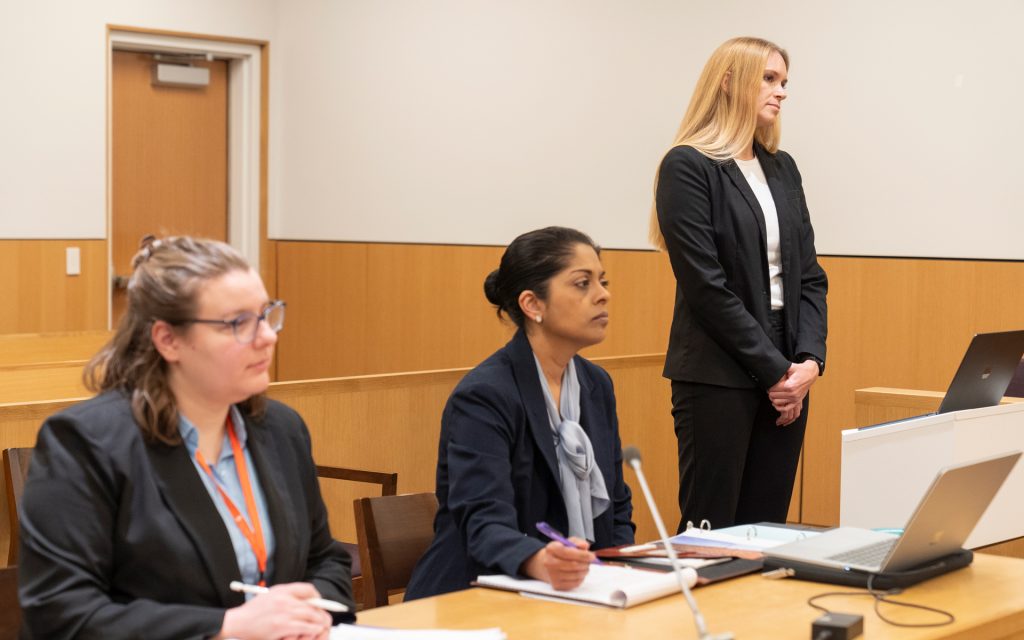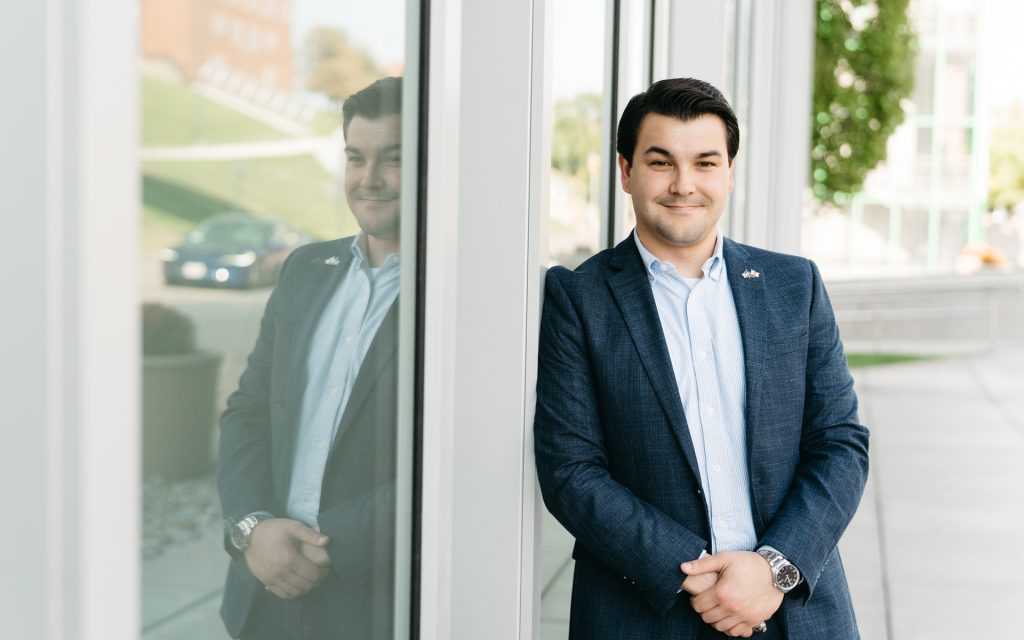
Anthony J. Ruscitto ’22, ’23 MPA, L’27, has lived a life of service since he enlisted in the U.S. Marine Corps at age 17. And, while he’s no longer flying in military helicopters around the world, he has landed in a place close to home where he can be a voice to those in need: the Syracuse University College of Law.
Ruscitto served for five years as a CH-53H Super Stallion helicopter crew chief, which included two deployments overseas as a sergeant, weapons and tactics instructor, responsible for training enlisted aircrew at the squadron level. He received the Navy and Marine Corps Achievement Medal (2nd award), Marine Corps Good Conduct Medal, and Sea Service Deployment Ribbon (2nd award) for honorable service.
It was the military that first showed him how critical it is to master the basics before you practice something and dig deep to fully understand rules and regulations. Ruscitto has since adapted those lessons to navigate his continuing commitment to helping others, as well as drill down into military regulations and learn what options, resources and benefits are available to him and other veterans.
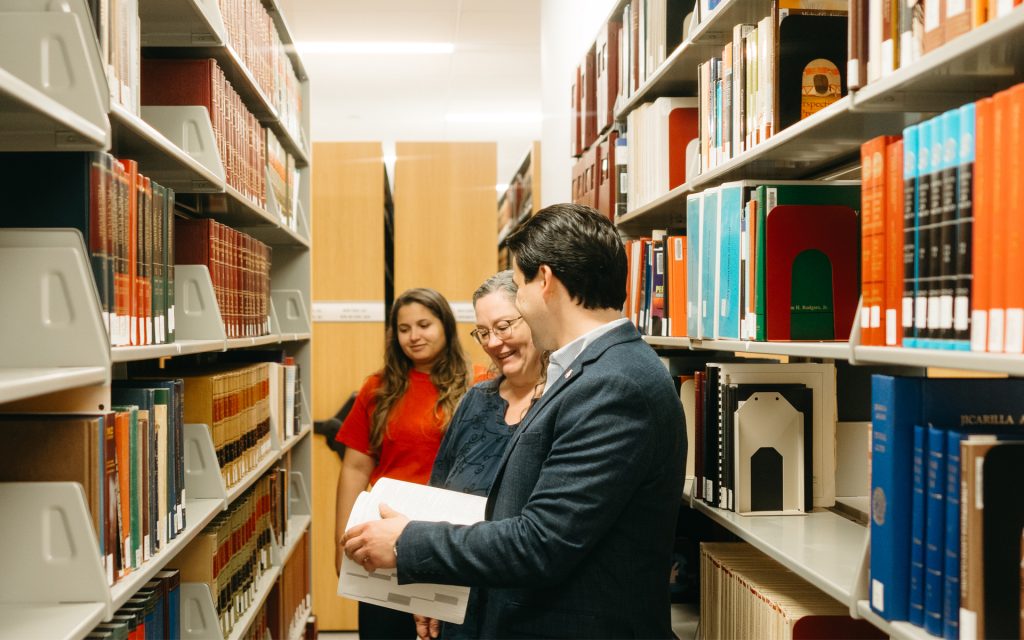
After completing his military service, the Central New York native earned a bachelor’s degree in psychology and forensic science from Syracuse University’s College of Arts and Sciences paid for entirely through the Post 9/11 G.I. Bill. Next, through the G.I. Bill and with scholarships available to veterans at Syracuse University, he was able to earn a master’s degree in public administration (MPA) from the University’s Maxwell School of Citizenship and Public Affairs.
During his time on campus, he served as president of the Syracuse University Student Veterans Organization and as a program advisor and graduate student researcher for the Syracuse University D’Aniello Institute for Veterans and Military Families (IVMF). His commitment to serving other veterans was recognized when he was named one of the Top 8 student-veterans in the nation in 2022 and, in 2023, was named Student-Veteran of the Year by the Syracuse University Office of Veterans and Military Affairs. True to his nature, he also found other paths to service, too, volunteering as a CPR instructor and an EMT for Syracuse University Ambulance Services.
After earning his master’s degree, Ruscitto spent a year working as an administrative intern at the Onondaga County Veterans Service Agency, where he assisted veteran service officers with preparing and submitting claims for benefits from Veterans Affairs, as well as interacted with local advocacy agencies to bring a greater awareness of the needs of local veterans.
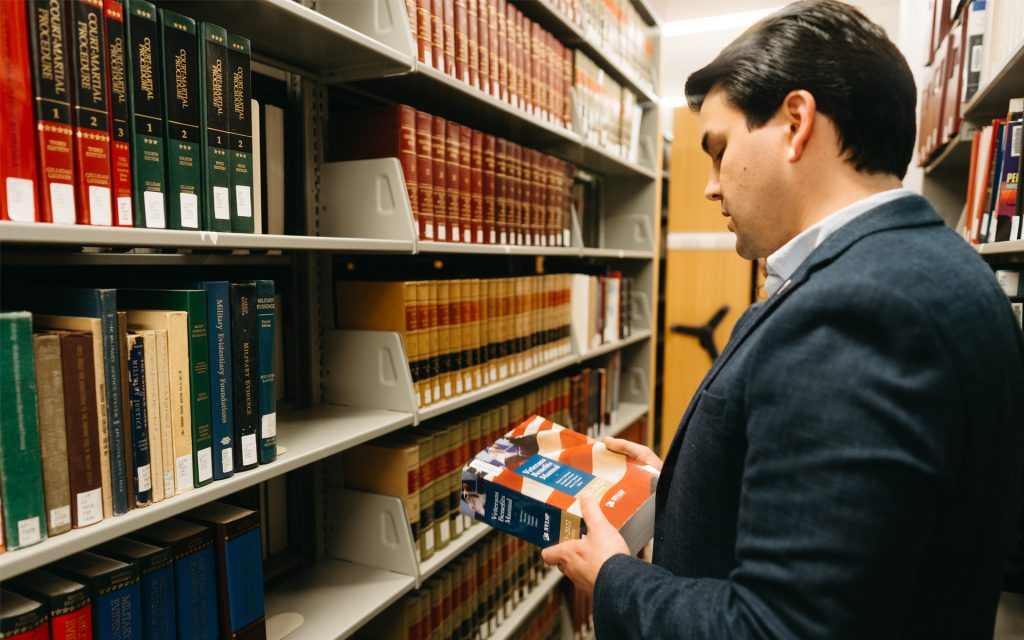
This fall, he returned to campus with a new mission: becoming a lawyer who could assist the military community by pursuing public interest or criminal defense law. His law school tuition was covered through the Veteran Readiness Program and the Department of Veteran Affairs.
“The idea that I can be the person in a courtroom who advocates for others, particularly those who have served our country, is very important. I can be a louder voice for the people who need one, and I believe that’s what public service is really all about.”
—Anthony J. Ruscitto ’22, ’23 MPA, L’27
Ruscitto’s approach to the challenges of law school is also rooted in his time in the military. “Every time I start something new, I go back to what I learned in the Marines: be honest, work hard and be humble,” he says.
“I know that I’m not the smartest person in the room and acknowledge that each person can teach me something. That encourages me to listen more closely to others’ perspectives. This mindset—that we can learn from everyone around us —comes from the Marines and has led me to continued success in ways I never thought possible,” Ruscitto adds.
Already, Ruscitto is finding his niche. He is the first-year representative for the Syracuse University Military and Veteran Legal Society, And, he is enjoying part-time work as a Syracuse Law ambassador, giving tours and introducing the law school to prospective students.
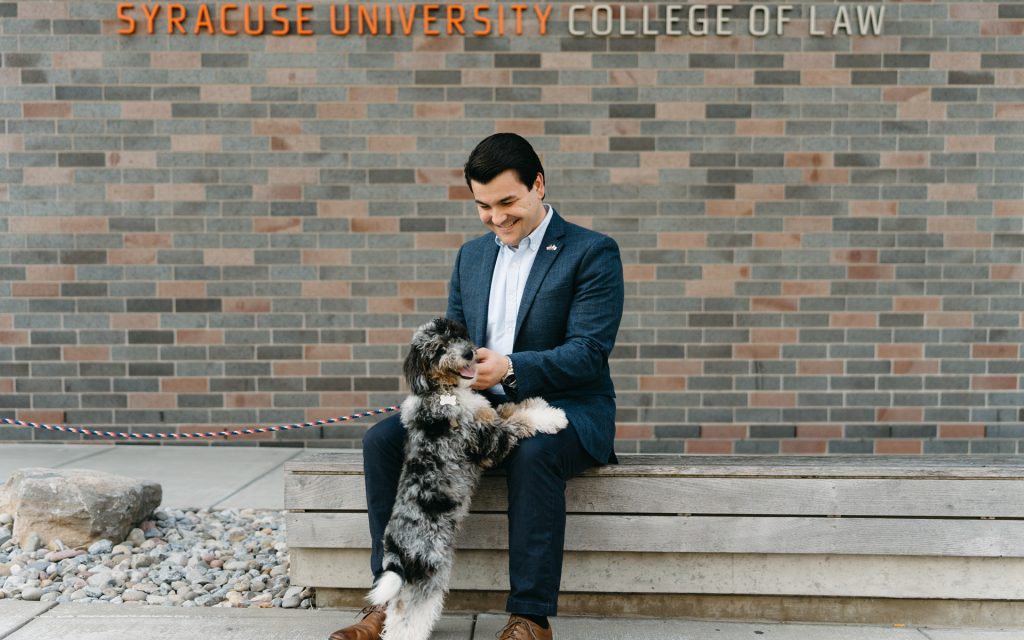
“I recently had the chance to interact with an undergraduate who is also a student-veteran, and I could tell he was uncertain about whether he could make it in law school,” Ruscitto explains. “So, I was excited to be able to show him that I am a student, I am a veteran—and I’m getting it done, and you can, too! The following week, we met up again. When you’re a veteran, it’s not always easy to see a clear path to law school, so I wanted to show him it was possible.”
Ruscitto is also enthusiastic about volunteering in the Syracuse Veterans Legal Clinic while at Syracuse Law. He says, “What better way to learn and apply the law than by helping veterans and their spouses in applying for the benefits they already earned?”
When Ruscitto graduates and adds “lawyer” to his long list of accomplishments, he intends to continue to advocate for veterans and members of the military. “I hope to stay in my own back yard and help veterans and citizens right here in the Syracuse community. Maybe that will be as a prosecutor or as a defense attorney. I don’t know yet, but, in the end, I’ll get to help people,” he says. “It’s a duty, and it’s an opportunity. No one should have to worry if they are getting fair treatment, even if they find themselves on the wrong side of the law. The idea that I can be the person in a courtroom who advocates for others, particularly those who have served our country, is very important. I can be a louder voice for the people who need one, and I believe that’s what public service is really all about.”


